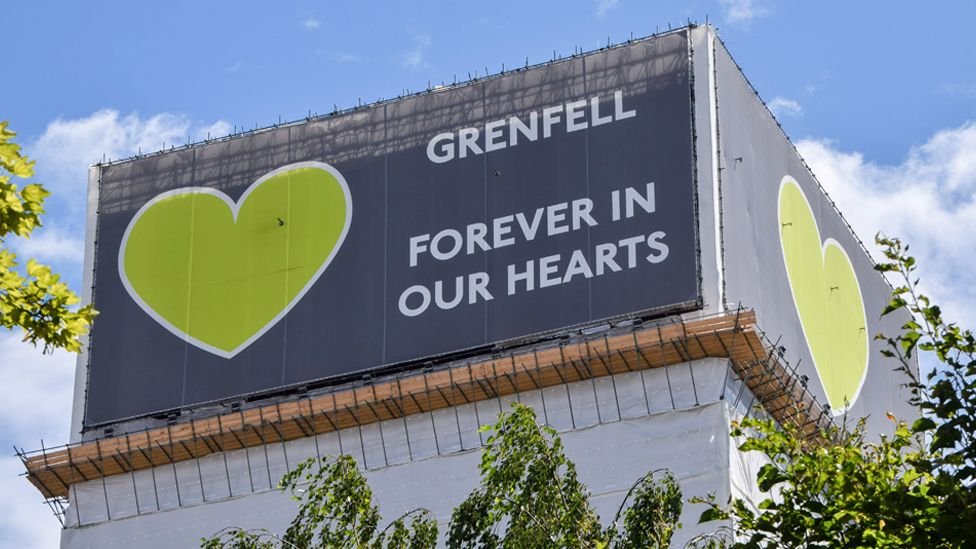The aftermath of the Grenfell Tower fire has been a long struggle to find justice, which many victims and their families feel has yet to be achieved. As the UK marks one year since the devastating fire that killed 72 people, the release of a sweeping inquiry report has reignited the debate over accountability and the systemic failures responsible for the disaster.
A damning report revealed
The long-awaited final report of the Grenfell Tower inquiry has been viewed with a mixture of anger and dismay by survivors and the families of those who died. The report, which concluded a six-year investigation into the fire, offers a scathing assessment of the corporate and government bodies involved. It accuses cladding manufacturer Arconic and other key players of “systematic dishonesty” and a deliberate attempt to downplay the fire risks associated with their products.
The inquiry’s findings expose a disturbing pattern of negligence and indifference from multiple fronts. According to the report, Arconic, the manufacturer of the Reynobond 55 cladding used on Grenfell Tower, behaved deceptively by concealing the true danger of its product. Similarly, insulation manufacturer, Celotex, and its competitor, Kingspan, were found to have made false claims about the safety and suitability of their materials.
The report also points to serious flaws in inspection and safety regulation. It criticises the London Fire Brigade for its “long-term lack” of effective leadership and the local council and tenant management organisation for their “persistent indifference” to fire safety, particularly in relation to vulnerable residents.
Seeking accountability
In the wake of the report, survivors and bereaved families are expressing deep frustration at the lack of immediate accountability. Grenfell United, a group representing many of those affected by the fire, has described the response from both corporate entities and the government as inadequate. Natasha Elcock, a spokesperson for the group, described the report’s revelations as evidence that the corporate bodies involved were “little better than crooks”, highlighting a failure of both greed and corruption.
Karim Khalloufi, who lost his sister Khadija in the fire, has expressed deep disappointment at the lengthy process. He expressed concern that delays in the investigation mean some people may never get justice. His sentiment was also echoed by Hissam Choucair, who lost six members of his family in the tragedy. Choucair has criticised the lengthy nature of the investigation, saying the delays have hindered potential criminal prosecutions and increased the suffering of those left behind.
The current stage of the investigation has further delayed legal proceedings. Police and prosecutors have indicated that it will take until late 2025 to complete their investigation, and a final decision on criminal charges is expected by late 2026. This timeline has been met with frustration from many who feel the legal system has failed to deliver justice in a timely manner.
Government and corporate responses
In response to the report, Prime Minister Keir Starmer has issued a formal apology on behalf of the government, acknowledging that the disaster “should never have happened.” Grenfell United has demanded severe consequences for the companies involved, including a ban on future government contracts. The group is also pushing for further measures to ensure that appropriate consequences are meted out for corporate negligence.
Arconic, one of the primary targets of the inquiry’s criticism, has rejected claims that it sold an unsafe product. The company has said it was not responsible for the fire’s tragic outcome. Celotex and Kingspan have acknowledged past failures and said they have revised their processes to prevent similar issues in the future.
The London Fire Brigade has committed to addressing the report’s findings and implementing the changes needed to prevent future tragedies. Commissioner Andy Roe stressed that the fire service is “not complacent” and will continue to work on the report’s recommendations.
Wider implications
The Grenfell Tower fire has become a symbol of wider systemic issues within building safety and governance in the UK. The investigation has exposed deep problems in the management of building safety and revealed a disturbing disregard for human life in favour of profit and regulatory oversight.
The report’s findings are consistent with criticisms of a wider trend of systemic failures across a range of areas, including governance, corporate responsibility and regulatory enforcement. It highlights that these failures can have devastating consequences for communities, particularly those already vulnerable.
Opposition leaders, including former Prime Minister Rishi Sunak and Liberal Democrat leader Sir Ed Davey, have called for a rigorous investigation into the findings, stressing the need for accountability.
